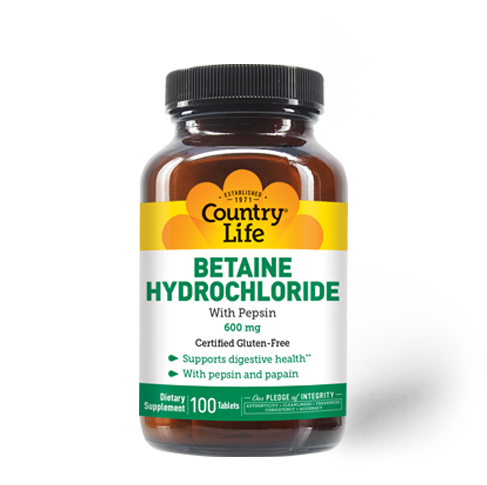Discover the Trick to Digestion and Resistance With Gut Health And Wellness Assistance

Comprehending Intestine Wellness
Understanding digestive tract wellness is crucial for general health, as it plays a substantial role in digestion, resistance, and even mental health. The gut, consisting of the intestinal tract, is in charge of damaging down food, soaking up nutrients, and eliminating waste. A well balanced intestine environment makes certain reliable digestion, permitting the body to utilize nutrients properly.
Furthermore, digestive tract health significantly impacts the immune system. The intestine houses a considerable portion of the body's immune cells, and a healthy digestive tract can help fend off microorganisms and lower swelling. Interruptions in intestine health and wellness can result in an over active immune reaction, possibly adding to autoimmune disorders and allergic reactions.
Furthermore, the digestive tract is typically referred to as the "2nd brain" due to the gut-brain axis, an intricate interaction network linking the mind and the intestine. This connection affects state of mind, cognition, and emotional well-being. Concerns such as dysbiosis, characterized by an imbalance in digestive tract bacteria, have actually been associated with psychological wellness problems, including anxiousness and anxiety.
The Intestine Microbiome Explained
The intestine microbiome, a diverse neighborhood of microbes living in the stomach tract, plays an essential role in preserving digestion wellness and total wellness. Comprising trillions of germs, infections, fungis, and various other microorganisms, this complicated ecological community help in the digestion of food, the synthesis of vital nutrients, and the regulation of metabolic processes.
Each individual's intestine microbiome is special, influenced by aspects such as diet regimen, way of life, genetics, and ecological direct exposures. A well balanced microbiome supports ideal food digestion by breaking down complex carbohydrates, generating short-chain fatty acids, and promoting the absorption of nutrients. Conversely, an inequality, often described as dysbiosis, can result in digestive system conditions, including cranky digestive tract syndrome (IBS) and inflammatory digestive tract condition (IBD)
Research has actually demonstrated that a diverse microbiome is connected with far better health and wellness end results, highlighting the value of dietary options in nurturing these microorganisms. Foods rich in fiber, probiotics, and prebiotics, such as fruits, veggies, and fermented items, can promote a healthy microbiome. Recognizing the digestive tract microbiome is essential for establishing targeted interventions focused on improving digestive system health and wellness and preventing intestinal conditions.

Link Between Digestion and Resistance
A durable connection exists between digestion and immunity, highlighting the essential duty of the gut in preserving general health and wellness. The intestinal tract is home to trillions of microorganisms that develop the digestive tract microbiome, which considerably influences both digestive procedures and immune reactions. This complicated ecosystem help in damaging down food, soaking up nutrients, and giving essential metabolites that support immune feature.
When food digestion is reliable, the digestive tract barrier remains intact, avoiding hazardous click here for info virus from getting in the blood stream. Around 70% of the immune system lives in the gut-associated lymphoid cells (GALT), which connects closely with the intestine microbiome.
Tips for Sustaining Gut Wellness
Sustaining intestine health and wellness is essential for preserving both digestive efficiency and a well-functioning body immune system. To cultivate optimum digestive tract health and wellness, think about integrating a number of useful strategies into your everyday routine.
First, prioritize hydration. Drinking adequate water supports food digestion and helps preserve the mucosal lining of the intestines. In addition, routine physical task can improve intestine mobility and promote a varied microbiome.
Conscious eating techniques are additionally essential. Eating food completely and consuming gradually can assist food digestion and stop overeating, which may worry the gut. visit this website Handling stress and anxiety with techniques such as meditation, yoga exercise, or deep-breathing workouts can favorably affect intestine health and wellness, as anxiety is understood to interfere with digestion processes.
Including prebiotics and probiotics into your program is one more efficient strategy. While particular foods will be reviewed later on, recognizing the value of these parts is essential. Prebiotics work as food for valuable intestine microorganisms, while probiotics introduce online beneficial organisms.
Lastly, stay clear of excessive use anti-biotics, as they can interrupt the balance of digestive tract flora. By adhering to these suggestions, you can considerably add to the maintenance of a healthy digestive tract, which is essential for total health and vitality.
Foods That Promote Intestine Wellness

Fermented foods, such as yogurt, sauerkraut, kimchi, and kefir, are rich in probiotics, which are useful bacteria that sustain intestine plants and enhance digestion. These foods can aid Read Full Report bring back equilibrium in the digestive tract, specifically after antibiotic usage or digestion disruptions.
In enhancement to fermented alternatives, prebiotic foods, such as garlic, onions, asparagus, and bananas, work as nutrients for these probiotics, advertising their development and activity. These soluble fibers sustain gut mobility and can reduce concerns like irregularity.
Moreover, incorporating high-fiber foods, including whole grains, legumes, fruits, and veggies, is crucial for preserving a healthy and balanced gut. Fiber help in routine bowel movements and assists avoid digestive system disorders.
Last but not least, omega-3 fatty acids discovered in fatty fish, flaxseeds, and walnuts have anti-inflammatory buildings that can even more sustain intestine health. Stressing these foods in your diet plan can cause a durable digestion system and boosted immune function.
Conclusion
In verdict, focusing on gut health and wellness is necessary for enhancing digestion and enhancing immunity. A balanced intestine microbiome, influenced by dietary options and way of life aspects, plays a vital role in nutrient absorption and inflammation reduction.
Comprehending gut wellness is crucial for total wellness, as it plays a substantial duty in digestion, immunity, and even psychological health. The intestine houses a considerable portion of the body's immune cells, and a healthy and balanced digestive tract can help fend off microorganisms and reduce swelling.Furthermore, the intestine is commonly referred to as the "2nd brain" due to the gut-brain axis, a complex interaction network linking the brain and the digestive tract.A durable link exists between food digestion and resistance, highlighting the critical role of the gut in maintaining general wellness.In verdict, prioritizing gut health is crucial for optimizing food digestion and enhancing resistance.